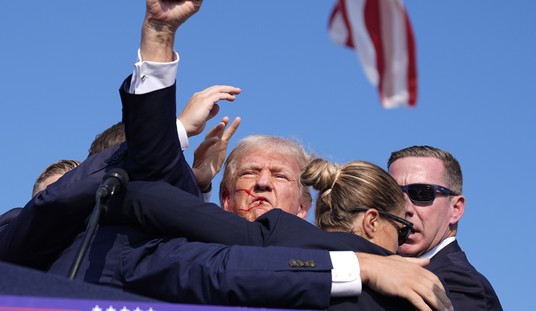It’s quite a thing when the head of a major U.S.-based multinational corporation identifies the People’s Republic of China — of all places — as having a friendlier attitude toward business than the United States, but that is exactly what has happened.
According to the Financial Times, Muhtar Kent, the chief executive of Coca-Cola, believes that it is easier to do business in China “in many respects” and that Brazil is also “an example of an emerging economy that is making itself attractive to investment in ways that the U.S. once did.”
“They’re learning very fast, these countries,” the FT quotes Kent as saying. “In the west, we’re forgetting what really worked 20 years ago. In China and other markets around the world, you see the kind of attention to detail about how business works and how business creates employment.”
In particular, Kent singled out U.S. tax policy for “creating uncertainty for business and hurting investment.”
“I believe the U.S. owes itself to create a 21st century tax policy for individuals as well as businesses,” Kent said.
The lack of a tax code friendly to the interests of businesses — which, after all, are the engines of economic growth and creators of jobs here in the United States — is a problem that has been under examination for some time by some of the nation’s brightest political minds.
Enter James Pinkerton, the former Reagan and Bush 41 White House aide and commentator who, with former Clinton White House aide Elaine Kamarck, is heading up a new coalition determined to bring sanity back to the corporate tax code and investment back into the United States.
Pinkerton is now co-chairman of the RATE Coalition — or the Reducing America’s Taxes Equitably Coalition — which, backed by a number of significant U.S.-based multinationals, is pushing for a major overhaul of the U.S. corporate tax code.
“The U.S. has the second-highest corporate income tax rate among the industrialized countries,” Pinkerton told PJMedia. “That’s not good for U.S. competitiveness, which means it’s not good for economic growth and jobs, jobs, jobs.”
Indeed the United States, which currently has an unemployment rate of more than 9 percent among those still looking for work, has seen more than 1.7 million jobs vanish just since President Barack Obama put his name to the original $800 billion stimulus package. Analysts suggest that, at a time when many corporations are posting near-record profits and the major U.S. banks have paid back with interest the bailout funds they received from the first TARP, job creation should be more robust. The reason it isn’t, they say, is that an environment of uncertainty hangs over the business community — an environment that has been created almost exclusively in Washington.
“In the last decade,” Pinkerton said, “30 of the 34 OECD countries have lowered their corporate income tax rate. This means, according to a study by Ernst & Young which can be found on the RATE Coalition’s web site, that the weighted average corporate tax rate for the OECD countries — excluding the United States — is almost 10 points lower than the U.S. rate.”
“The OECD is 25.3; the U.S. is 35. Call it the ‘Corporate Tax Competitiveness Gap,’” he adds.
Over the last thirty years the U.S. has found it increasingly difficult to compete in the global economy because the playing field is not level, thanks in large part to policies put in place by Democrats and Republicans alike. The fact that the United States has seen so many jobs move out of the country and overseas reflects the fact that, for many industries, the U.S. is not the best place to do business.
What makes the RATE Coalition’s proposal interesting and politically viable is that, like the successful 1986 Tax Reform Act authored by the Reagan White House and negotiated successfully through Congress with Democratic support, it follows the model of trading lower rates for the reduction or elimination of loopholes, tax credits, and other tax breaks that mask the true costs of doing business. The idea that such a move would be acceptable to as many of the nation’s Fortune 100 and Fortune 500 businesses and business leaders that have so far endorsed the overall idea is, to put it bluntly, remarkable.
Pinkerton advises that the coalition has not yet determined an exact item-by-item agenda for moving forward — “Politics is the art of the possible,” he says — but that the general goal is to return the U.S. to globally competitive status with the rest of the OECD, which is to say, 25.3 percent.
“Lowering the rate is a good idea not only for increasing competitiveness, but also for decreasing the rent-seeking politicization of the economy,” Pinkerton said. “It’s the overall gist of Lafferite GOP/conservative/libertarian tax thinking in the last few decades. But Democrats have had the same idea at times, viz. the ‘Bradley Block’ from the 80s and 90s which said ‘You have your choice between high rates on a narrow base, or low rates on a wide base.’”
“To be sure, there are lots of ideas out there [about] reforming the tax code, but the RATE Coalition has identified one specific tax reform goal that has a lot of ‘brand equity’ and public understanding built into it,” Pinkerton said. “There’s an excellent chance that if enough political and economic actors get involved in the effort, this rate-reduction could happen. And that would be a genuine success on behalf of the economy.”
Is it doable? Only time will tell. There is certainly more support in Washington for major corporate tax reform than at any time in recent memory, even as left-wing, anti-corporate protestors are occupying critical real estate on Wall Street and the president is teeing up a re-election campaign that — harkening back to the days of William Jennings Bryan and Eugene V. Debs — is going to be heavily populist in its themes. Pinkerton thinks the disgust many voters have for the partisan divisions — especially centrist-leaning independents — may lead to the critical tipping point that makes things happen.
“The American people always like to see their leaders coming together to solve urgent national challenges,” Pinkerton told PJMedia. “The weakness of the economy today is just such a challenge. So the RATE Coalition looks forward to working with all who wish to join with us in meeting the challenge of getting the economy moving again [and] to reducing, and hopefully eliminating, the Corporate Tax Competitiveness Gap — bringing new jobs, growth, and, yes, hope to the American people.”









Join the conversation as a VIP Member